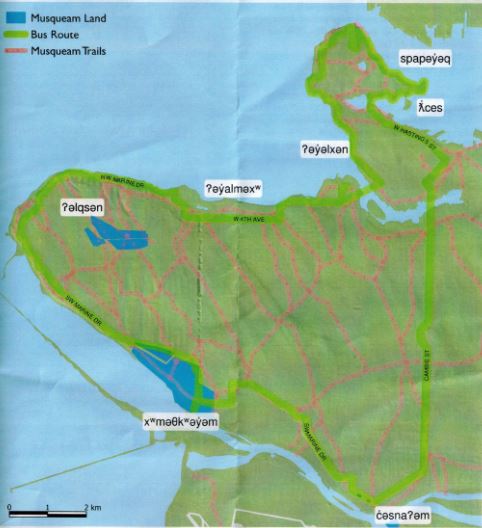
The Vancouver Heritage Foundation is piloting a project with the Musqueam Indian Band to offer a tour of Vancouver from a slightly different perspective then the usual whip around Stanley Park, Spanish Banks and the Museum of Anthropology. Actually, we did all those things on a four hour bus ride, but we also got some insights into traditional Musqueam territory and why several well-known sites hold significance for them.
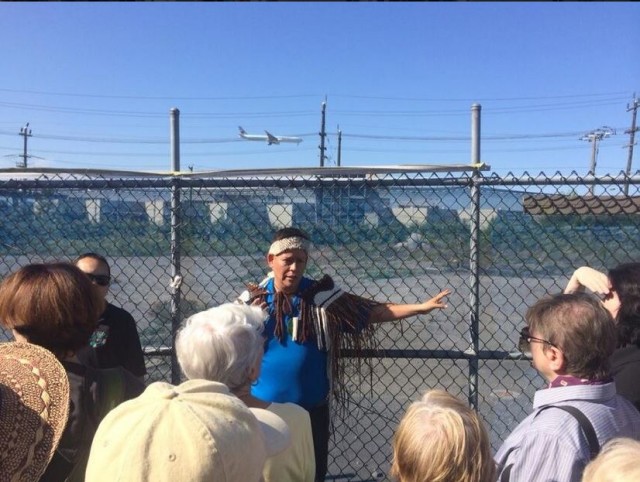
Our first stop was at a fenced-in piece of dirt in Marpole underneath an airport runway. Appearances are deceiving, because this site was once part of a thriving settlement for the Musqueam. According to our guide Terry Point, the land has been occupied for 5,000 years and is one of the most significant archaeological sites in Canada.
Over the years, archaeologists have found carved stone bowls, sculptures, arrowheads, stone tools and skeletons encased in copper. And, while it was declared a National Historic Site of Canada in 1933, that didn’t stop the building of the Fraser Arms Hotel destroying a chunk of it in the 1950s.
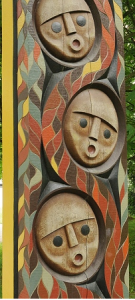 As recently as 2011, the City of Vancouver issued a building permit to Century Holdings and it looked like the Marpole Midden would be turned into a 108-unit condo development. But work stopped when the remains of an adult and two small children were discovered, kicking off a Musqueam vigil that went for over 200 days.
As recently as 2011, the City of Vancouver issued a building permit to Century Holdings and it looked like the Marpole Midden would be turned into a 108-unit condo development. But work stopped when the remains of an adult and two small children were discovered, kicking off a Musqueam vigil that went for over 200 days.
The Musqueam subsequently bought back the land from the developer and in 2018, the City returned a parcel of land next to the pub which had been used as a parking lot.
Most of the sites we visited were former warrior villages, and they were a vicious lot back in the day. They used to put their enemies heads on stakes at the mouth of the Fraser to keep out unwelcome visitors, and they buried their dead up in trees, leaving the bodies to rot and later gathering up the bones.
That’s of course how Deadman’s Island in Stanley Park got its name.
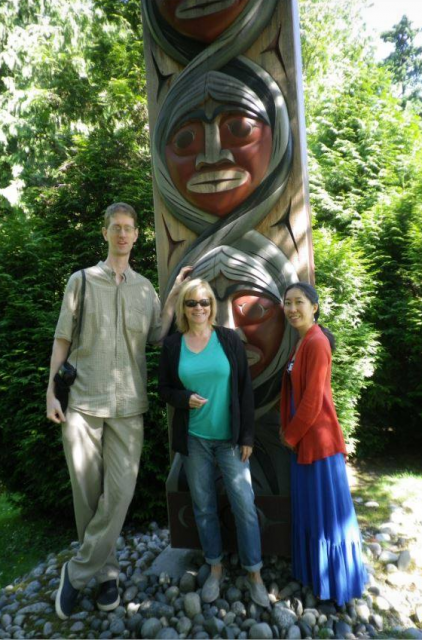
Many of the roads we travelled—including Granville Street—were once a network of trails that spread out all over the city and were used by runners to warn the villagers of impending attacks or visitors.
Terry’s aunt, the renowned Coast Salish artist Susan Point, carved the stunning gateway portals that mark the entrance to Stanley Park and the Stanley Park totem poles. These, we are told, are the most visited tourist attraction in B.C.
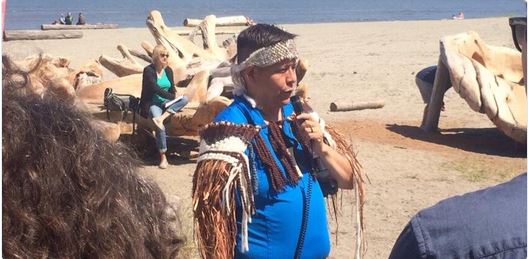
We ended the tour at the Musqueam Cultural Centre in time to celebrate National Aboriginal Day. There is another tour on Sunday July 27. See the Vancouver Heritage Foundation for details.
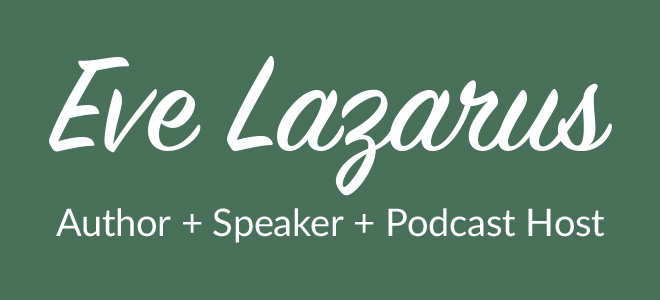



4 comments on “Celebrating National Aboriginal Day with the Musqueam”
Hi Eve I must say that was extremely interesting… Thanks.
Thank you and thanks for following!
Can you only imagine if a condo building had been built at this site – may the Musqueam and other Aboriginal groups see their histories remain for all of us. To learn from the past and to realize what a wonderful world we truly live in when every nationality is respected and honoured. Thanks for sharing this story with us Eve.
[…] was at Spanish Banks as part of a tour by the Musqueam last Saturday and was delighted to discover these enormous pieces of furniture sculpted by […]